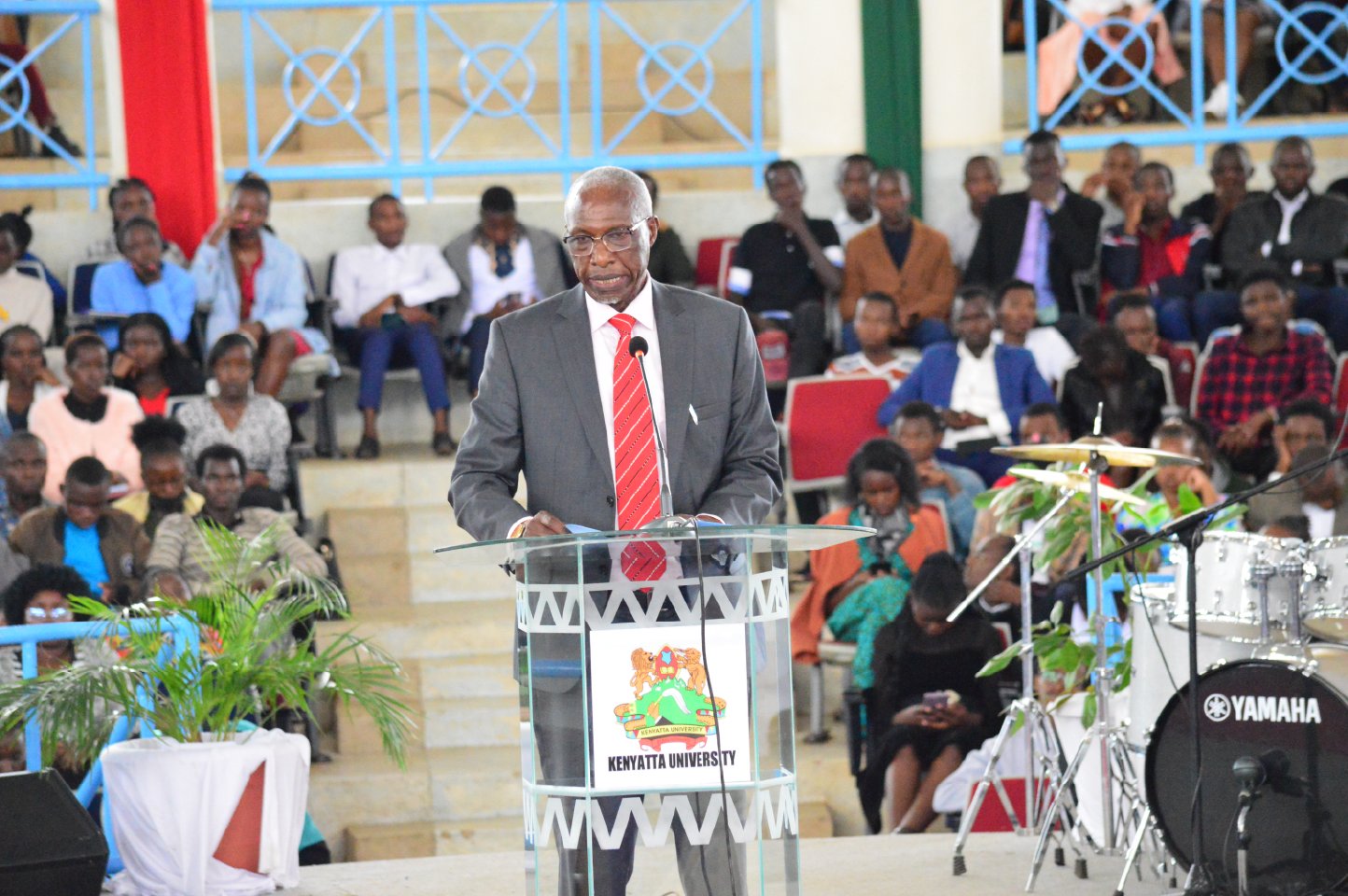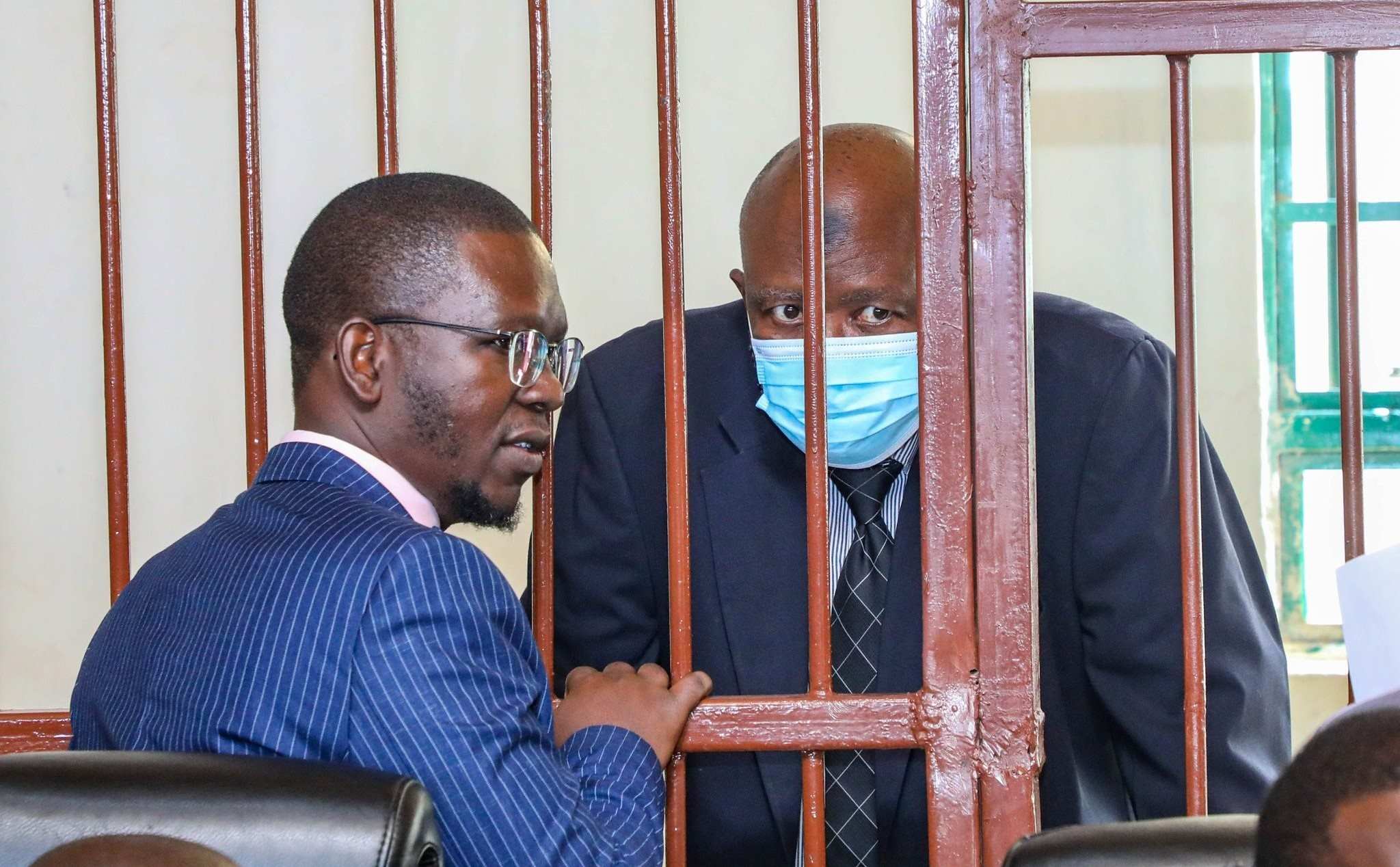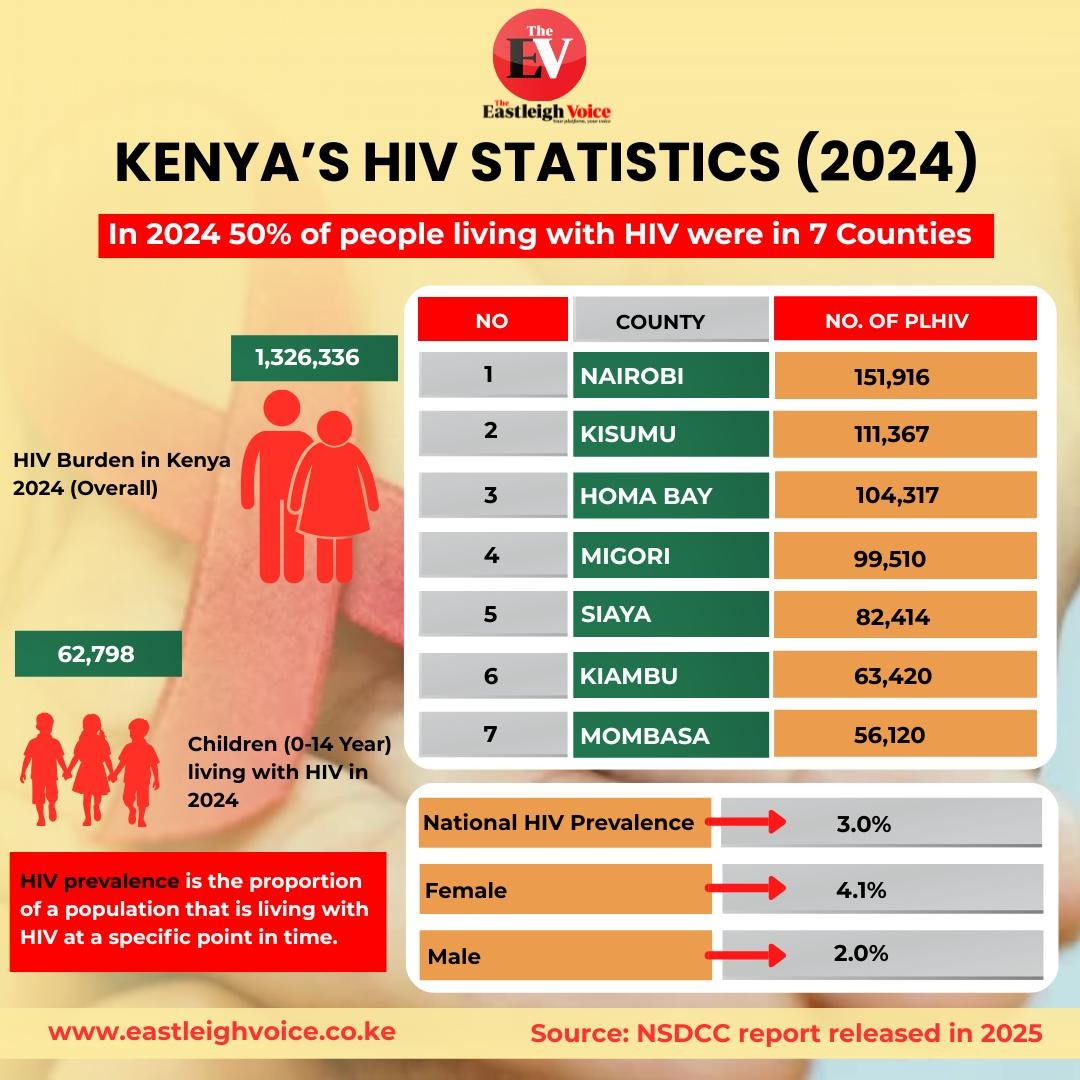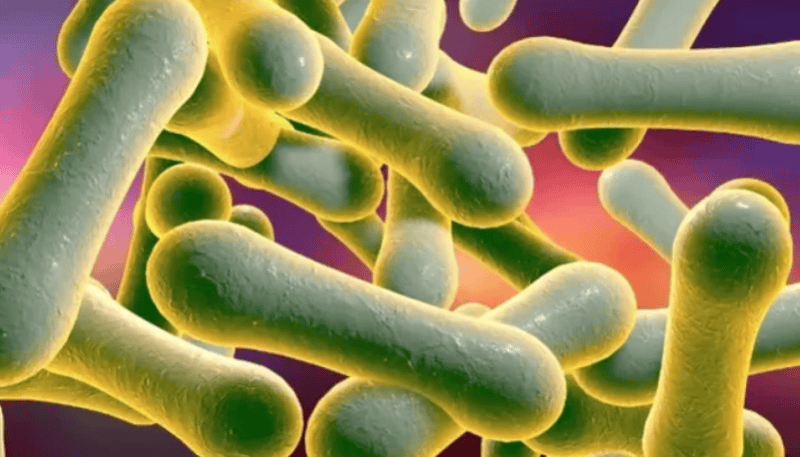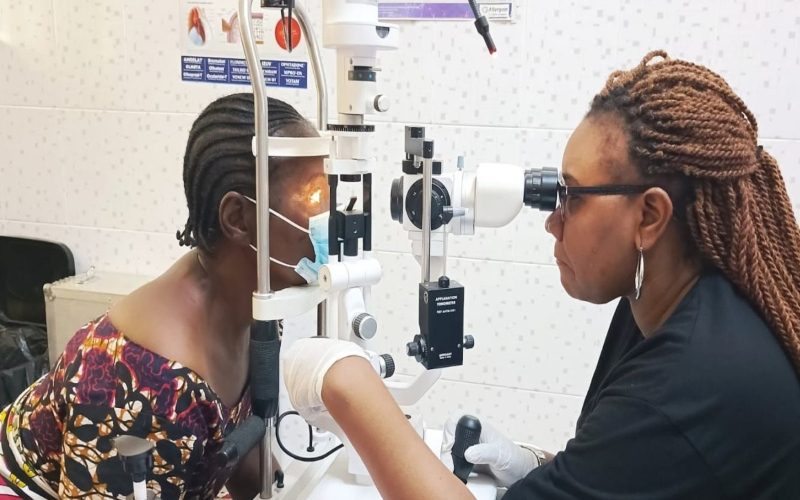Drought resilience programme set to boost food production in Marsabit, Turkana unveiled
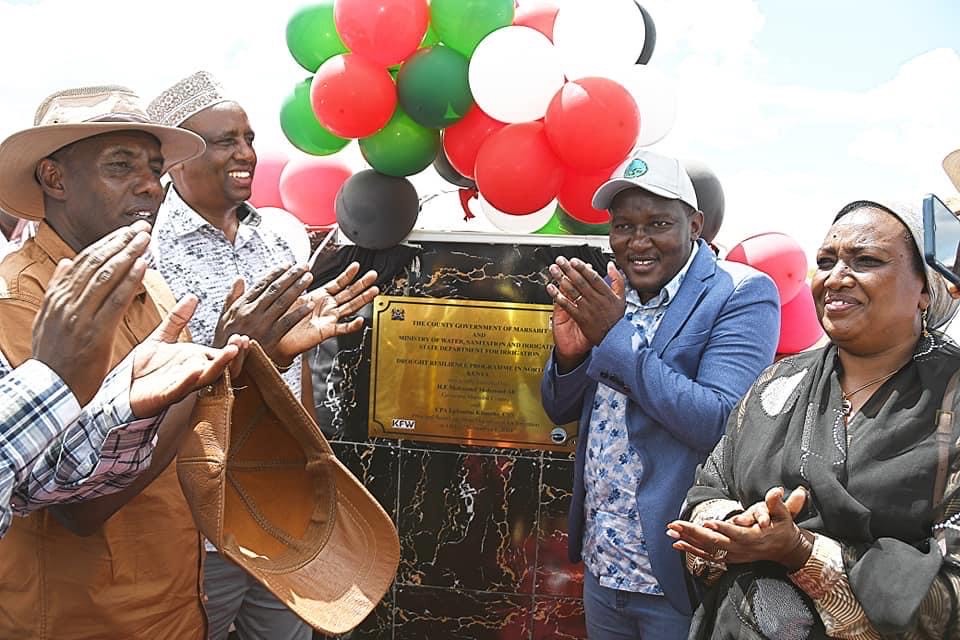
The Sh970 million project, supported by the German government, aims to benefit approximately 255,000 people, rehabilitate 5,000 acres of rangeland, and create 10,000 direct and indirect jobs.
A Drought Resilience Programme in Northern Kenya, aimed at enhancing resilience against drought for communities in Marsabit and Turkana counties, was unveiled on Saturday in Sololo, Marsabit County.
Ephantus Kimotho Kimani, the Principal Secretary for the State Department of Irrigation, who was the chief guest, said the first phase of the project entails the design of a mega-dam that will be transformative for the communities in these counties, who are regularly affected by drought that threatens their livelihoods.
More To Read
- Factory farming in Africa: Development banks see it as a good idea, but it’s bad for the climate
- Somalia declares drought emergency as millions face hunger after failed rains
- WFP warns of hunger crisis in Nigeria as 35 million face food shortages
- Somalia faces worsening hunger with millions needing assistance
- Smartphones, women’s rights and coupons: new trends that can boost insurance for African farmers
- IGAD calls for joint action to protect livestock, pastoral livelihoods in Horn of Africa
"We are here to launch the first phase of the mega-dam project, where engineers will be on the ground to design the dam, followed by the mapping of seasonal rivers to support irrigation for food production, as well as domestic and livestock needs," he stated.
Addressing Sololo residents, he said the Sh970 million project, supported by the German government, aims to benefit approximately 255,000 people, rehabilitate 5,000 acres of rangeland, and create 10,000 direct and indirect jobs.
He explained that the project being launched was part of a broader initiative started in 2019, which is currently in the procurement phase of its Annual Investment Plan (AIP 2), with preparatory activities for AIP1 already underway.
"The initiative encompasses a range of strategies, including water harvesting, storage, irrigation, animal health, and rangeland management," he disclosed.
The PS added that the project also focuses on fodder production, livestock marketing, rural road improvement, sanitation, health services in schools, and essential infrastructure.
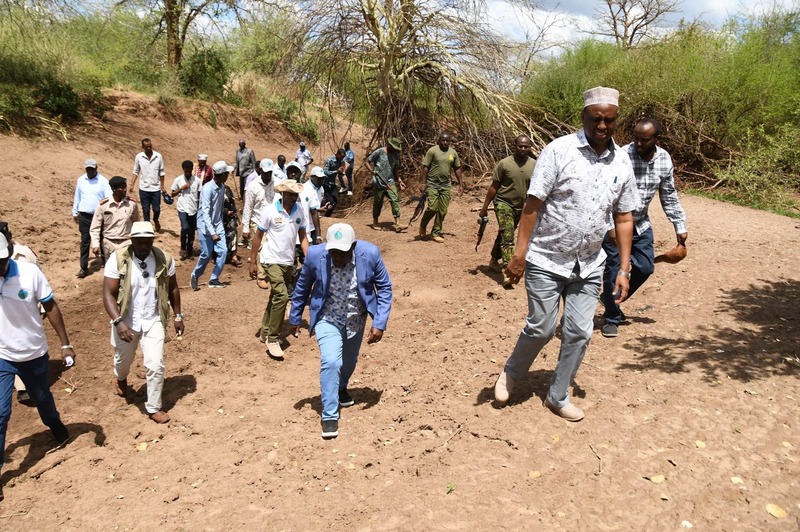 Leaders touring the twin pans in Obbu ward to check the progress of the ongoing water projects. (Issa Hussein)
Leaders touring the twin pans in Obbu ward to check the progress of the ongoing water projects. (Issa Hussein)
Kimotho emphasised that with adequate water resources in place, the arid and semi-arid counties would be able to produce sufficient food for household consumption and to supply neighbouring counties.
He commended Marsabit County's initiative to put over 10,000 acres of land under food production.
The PS, who was accompanied by the Principal Secretary for ASALs and Regional Development, Kello Harsama, Marsabit Governor Mohamud Ali, and Marsabit Woman Representative Naomi Waqo, earlier visited Kukub Twin Pans in Obbu Ward to inspect construction progress.
The twin pans are currently being developed through the Emergency Locust Response Projects and the National Irrigation Board.
He said that the capacity of the twin water pans will be increased in the near future to support government projects for the livestock feedlot system and to enhance forest cover.
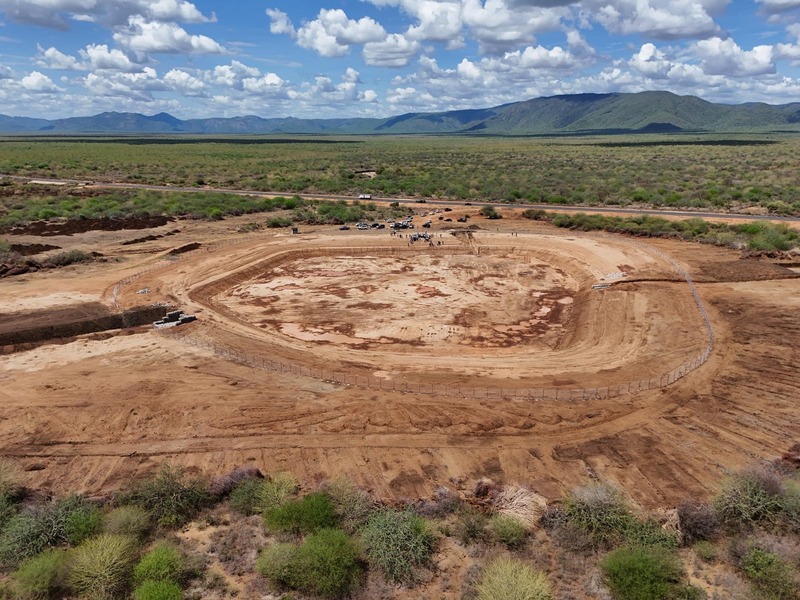 The ongoing water projects in Obbu ward. (Issa Hussein)
The ongoing water projects in Obbu ward. (Issa Hussein)
PS Kello urged the communities in Marsabit and Turkana to make use of the proposed projects aimed at mitigating drought.
"The government is set to implement numerous projects to support crop production and the livestock sector; this will help communities in ASAL regions overcome the impacts of extreme climate shocks," he noted.
Governor Mohamud expressed hope that the Drought Resilience Programme would shield communities from drought and enable Marsabit County to produce sufficient food.
He promised that the county government would play its part in implementing the programme, which he said was a joint effort between donor partners, the national government, and the county.
Top Stories Today

